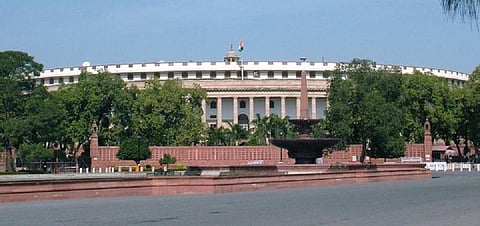

Electronic waste (e-waste) generation in India increased by over 43 per cent between 2017-18 and 2019-20, according to the written statement presented by Babul Supriyo, Union minister of state in the ministry of Environment, Forest and Climate Change, presented in the Lok Sabha.
E-waste increased to over one million tonnes, from an estimated 0.7 million tonnes in three years.
State pollution control boards (SPCB), including those of Goa, Jammu and Kashmir, Himachal Pradesh, Madhya Pradesh, Maharashtra, Chhattisgarh and Punjab had completed the inventorisation of e-waste generation under the E-Waste (Management) Rules, 2016. But the inventory for each state in the country was not available, Supriyo said.
Rajasthan tops MGNREGA
Rajasthan created the highest number of person days under the Mahatma Gandhi National Rural Employment Guarantee Act (MGNREGA) during 2019-20, according to data presented in the Rajya Sabha by Narendra Singh Tomar, Union minister for rural development.
West Bengal spent the most under MGNREGA — Rs 7,501 crore — in FY 2019-20, Tomar added. Rajasthan followed next with an expenditure of around Rs 6,705 crore.
Fish production rises
Fish production in India increased by over 18 per cent between 2016-17 and 2018-19, according to the written statement presented by Pratap Chandra Sarangi, Union minister of state for fisheries, animal husbandry and dairying in the Rajya Sabha.
The Pradhan Mantri Matsya Sampada Yojana (PMMSY) aimed to increase fish production from the current national average productivity of about three tonnes per hectare, he stated.
Agriculture sector
India’s agriculture sector had functioned smoothly even as many other sectors had been affected during the novel coronavirus disease (COVID-19) lockdown, Tomar, Union minister for agriculture and farmers’ welfare told the Rajya Sabha.
The Aatmanirbhar Bharat Abhiyan to strengthen infrastructure, logistics, capacity building, governance and administrative reforms for agriculture were among several key initiatives and programmes undertaken by the Union government to overcome the problems faced by farmers due to the pandemic, he added.
The Pradhan Mantri Kisan Samman Nidhi (PM-KISAN) benefitted around 10.21 crore farmers. An amount of around Rs 41,086 crore had been disbursed to various beneficiaries under the scheme, Tomar stated.
Toxic farming chemicals
The agriculture and farmers’ welfare ministry had so far banned 45 pesticides and four pesticide formulations for import, manufacture or sale in the country. In addition, six pesticides shall be phased out by December 31, 2020, Tomar told the Rajya Sabha.
The ministry was implementing the ‘Sub-Mission on Plant Protection and Plant Quarantine’ Scheme, under which Integrated Pest Management approach was being promoted to educate farmers about judicious use of chemical pesticides, he added.